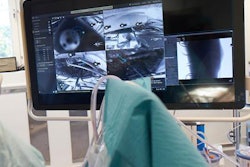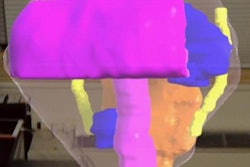Researchers from Italy have used augmented reality and 3D virtual models based on MRI scans to facilitate robot-assisted surgery for prostate cancer, according to an article recently published online in the British Journal of Urology International.
In previous research, first author Dr. Francesco Porpiglia and colleagues from San Luigi Gonzaga Hospital in Turin assessed the viability of a new technique for prostate cancer surgery that they referred to as augmented reality robot-assisted radical prostatectomy.
They set out to test this method in a broader clinical context in the current study. They began by acquiring high-resolution multiparametric MRI scans of 30 patients with prostate cancer scheduled to undergo prostate cancer removal from June 2017 to April 2018.
The group used reconstruction software to create 3D virtual models of the prostates and lesions based on these MRI scans. For surgery, the clinicians overlaid the 3D models onto a screen showing a real-time endoscopic view of the patient on the display of a robotic surgical machine (daVinci Surgical System, Intuitive Surgical). Using this augmented reality setup allowed the surgical team to identify the location of the lesion in approximately 79% of the cases (BJU Int, 24 September 2018).
"Potentially, this approach translates into better outcomes as the surgeon can tailor the procedure for each patient," the authors concluded.


















